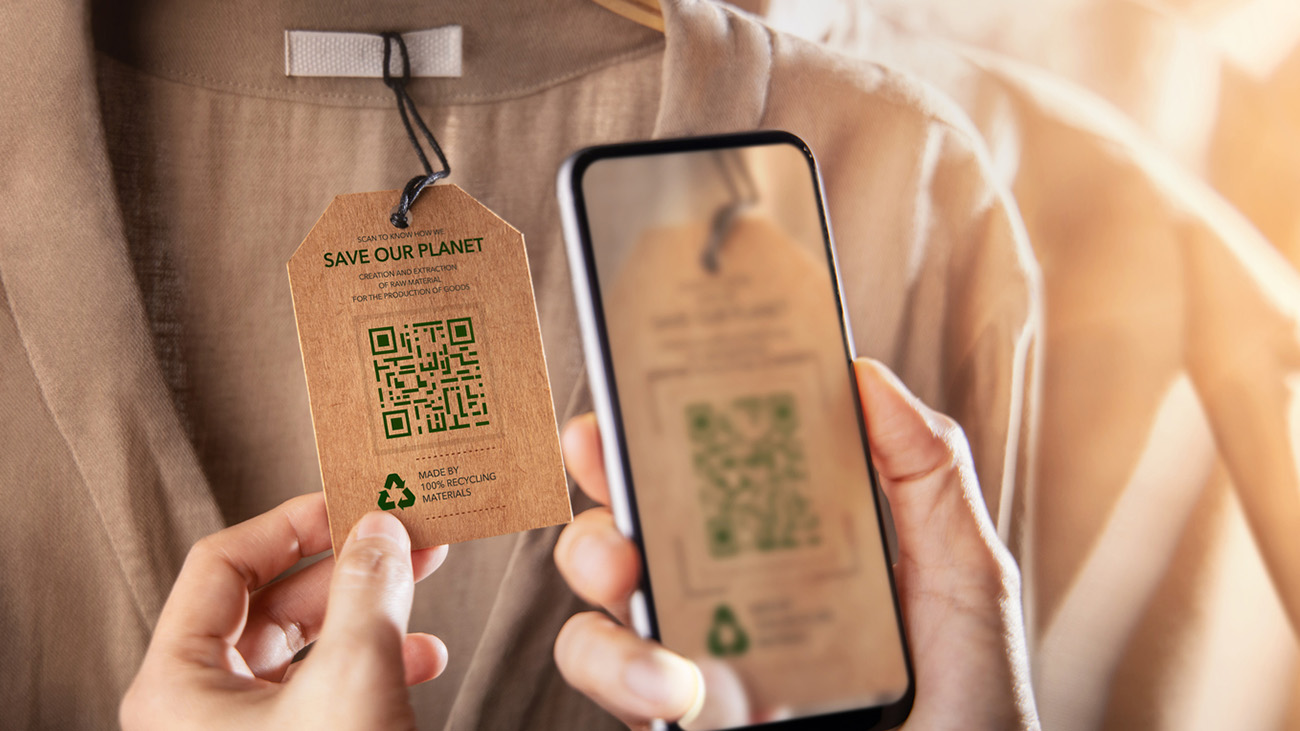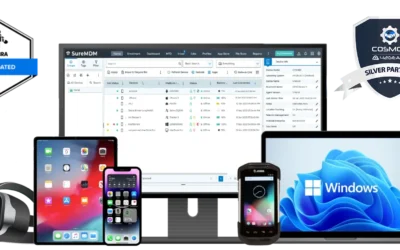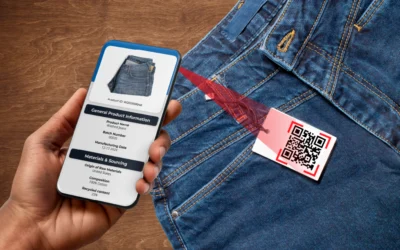There is a practical side to sustainability that can improve your bottom line, especially in the fashion industry. Consumers are making purchases based on the social consciousness of the manufacturer or retailer, and you can build that social consciousness into your business model using RFID.
Most of us are waking up to the reality that sustainability is no longer a “nice to do.” It has become more urgent to reduce waste, use fewer raw materials, and protect the environment by reusing products we have created.
The reality is that slim business margins often make acting on our ecological ideal difficult. Now, there is a distinct business purpose for the fashion industry to make better decisions about how it designs, manufactures, and disposes of clothing. RFID technology is available to implement it, and the great thing is that it also confers a host of other benefits.
The Linear Fashion Model
The historic fashion model is linear. Manufacturers create clothing and sell it. Consumers use it briefly, then throw it away or send it to a thrift store for a second round that postpones its ultimate arrival in the landfill.
Much of this clothing is synthetic, including polyester, spandex, nylon, and other synthetic fabrics. It is made from crude oil and takes 20-200 years to biodegrade. There is no tracking or reuse intent in this model.
Here are a few statistics about the fashion industry:
- It consumes more energy than the aviation and shipping industries combined
- It produces nearly 20% of global wastewater
- 85% of textiles are incinerated or end up in a landfill when most could be reused
The Circular Fashion Model
The circular fashion model is a closed-loop system with a zero-waste goal. This model sees every piece of clothing returning to the manufacturer or industry for further use. An ideal circular model has the following attributes:
- Uses biodegradable fabrics
- Has a post-consumer disposal path within the brand or industry
- Educates consumers about the origins of their clothing
- Comes with instructions on how to dispose of it responsibly after use
Is this a lofty goal? Yes indeed. Is it impossible? No. What we couldn’t do a decade ago, we can do now using RFID technology. RFID can effectively track each item of clothing through its entire lifecycle with a tag that identifies where it came from, how it was made, and what to do with it when it is no longer useful.
Generational Environmental Consciousness
Millennials and Gen Z are the upcoming generations. Millennials were born between 1965 and 1980 and are 27-42. Gen Z comprises individuals born between 1997 and 2012 who are now 11-26.
Gen Z is now the most influential generation. They want sustainable products and are willing to pay more for them. As many as 62% of Gen Z shoppers buy from sustainable companies, and 72% will pay more for these products.
Millennials are the world’s largest generation. They grew up connected to the internet and on social media. As a result, they are socially conscious and technology-based. They are also ethnically diverse and optimistic. Millennials prefer to buy from brands that make a positive impact, and 73% of them do precisely that.
This emphasis on sustainability is a stunning opportunity for clothing retailers to do the right thing for the environment, appeal to a new generation of buyers, and upgrade their sustainability currency.
Start Somewhere
While the ideal of circular fashion can seem overwhelming, there are approachable choices you can make to begin. These choices make a difference in the environment and become a part of your identity as a sustainable company, appealing to your buying audiences.
Various clothing brands are moving toward greater sustainability by using ethically created clothing, biodegradable fabrics, recycling clothing to create new fashions, and using other materials like plastic bottles to manufacture innovative styles.
Meeting the zero-waste model may not be possible today, but starting somewhere is a step in the right direction. You can build on that foundation to approach the ideal more closely and continue to develop your sustainability currency over time.
Start with RFID Tracking
In the zero-waste model, tracking every piece of clothing from manufacture through disposal is essential. This ability is RFID’s great advantage. It delivers real-time, actionable digital DNA about every item, and it can be assigned anywhere in the supply chain – at the factory, the distribution center, or the store.
RFID enables you to track every bit of inventory with up to 99% accuracy. Knowing how much product you have means less waste throughout the supply chain. The tracking part is effortless once your RFID system is in place. As the product passes by an RFID portal, it registers and reports its status to the RFID software, delivering the data you need.
What Else Is Possible with RFID?
The answer is plenty. Here are a few examples:
Sustainability Initiatives
With item-level tracking and real-time data, you can adjust your business strategies and processes to increase your sustainability profile. Will you offer a return program with an environmentally friendly disposal path and reuse possibilities, or will you start by educating your customers about the product they’re buying? The options are wide open.
Meet Major Retailer RFID Requirements
Walmart will require supplier tagging for all required products after February 1, 2024. Retailers like Macy’s, Target, Dillard’s, and Sam’s Club also require supplier tagging. MSM Solutions has the expertise, equipment, and supplies to keep you in compliance, which makes it possible to enter or maintain relationships with these important retailers.
Meet GS1 Requirements
When you meet GS1 standards, you operate consistently with the world’s most widely used standards system. Consistent standards create a common foundation that enables you to participate fully in the global supply chain and improve inventory visibility. The pace of business continues to accelerate, and GS1 compliance helps you face the challenges that keep coming. MSM Solutions enables you to meet your compliance milestones.
Streamline Your Inventory Management
RFID gives you item-level tracking so you know where each item is, giving you total visibility into your inventory at all times. It also reports back to MSM’s PortalTrack software. PortalTrack gives you actionable data to make informed decisions about when and how much to order, reducing stockouts and overstocks and improving your bottom line.
Partner with MSM Solutions
MSM Solutions has been in business since 1981, helping customers identify, track, count, and manage inventory and assets. Leverage our expertise and product lineup to propel your business forward. It’s good for your customers, the environment, and your business.



